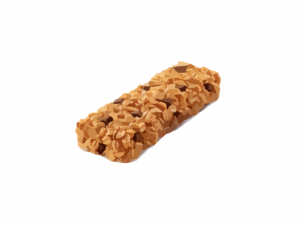Solving Common Digestive Issues in Dogs With the Right Diet

For many pet owners, seeing a dog struggle with digestive issues is both worrisome and challenging. Digestive problems can range from minor discomfort to severe illnesses that require immediate attention. Identifying these issues and understanding how to address them through diet is a key part of responsible pet ownership. In this article, we explore the causes and symptoms of canine digestive problems, the crucial role of a balanced diet, and how to select the best food options that promote digestive health. Below, learn how to aid your furry friend’s journey to better gut health through nutritional awareness.
Homemade vs. Commercial Dog Food: Choosing the Right Option for Digestive Health
Homemade dog diets are becoming increasingly popular among pet owners who want to have complete control over what their dogs eat. When properly formulated, a homemade diet can be a healthful option, providing fresh, whole ingredients tailored to a dog’s specific digestive needs. However, designing a nutritionally balanced homemade diet can be complex and should ideally be done under the guidance of a veterinary nutritionist.
On the other hand, commercial dog foods offer convenience and consistency and are developed to meet established nutritional standards. High-quality commercial foods are designed to provide complete and balanced nutrition for dogs of different life stages and health statuses. The choice of products ranges from dry kibble to canned wet food, with some specially formulated for digestive care.
Exploring the benefits of both homemade and commercial diets, it becomes clear that there is “no one size fits all” answer. Each dog is unique, and so are their digestive health needs. Regardless of the type of diet chosen, it’s imperative that they contain the right nutrients to aid in digestion and overall health. For pet owners interested in premium quality commercial dog foods, consider the Premier dog food from Dr. Marty, renowned for its focus on high-quality ingredients that can aid in digestive health.
Identifying the Best Ingredients for a Digestion-Supportive Canine Diet
When examining dog food labels, look for whole food ingredients known to benefit canine digestive health. Elements such as lean meats, whole grains, and fibrous vegetables are often well-tolerated by dogs and can form the basis of a nourishing diet. Dietary variety can also be important, as different sources of proteins and carbohydrates can prevent sensitivities from developing over time.
With today’s buzz around natural and organic dog foods, it’s essential to differentiate marketing hype from genuinely beneficial products. The best digestive-supportive ingredients should be recognizable and not overly processed. This approach champions the idea that a simpler, more “biologically appropriate” diet could lead to better health outcomes for our pets.
Avoiding potential irritants is just as critical as choosing the right ingredients. Common irritants in dog food include artificial colors, flavors, and preservatives, as well as high-fat cuts of meat that are tougher to digest. Whenever possible, select foods that avoid these components to maintain your dog’s digestive well-being.
Incorporating Probiotics and Prebiotics into Your Dog’s Diet for Optimal Digestion
The importance of a balanced gut microbiome in dogs cannot be overstated. Probiotics and prebiotics play pivotal roles in maintaining gut health by fostering beneficial bacteria and inhibiting the growth of pathogens. Probiotics are live beneficial bacteria that can be found in some dog-friendly fermented foods or as supplements. They may help regulate digestion and protect against intestinal upsets.
Similarly, prebiotics, which are non-digestible fibers found in certain plants, act as fuel for probiotics, promoting their growth and activity in the gut. By integrating prebiotics into your dog’s diet, you’re essentially providing the good bacteria with the resources they need to thrive and support digestive health. Both of these elements can work together to enhance gut function and resilience.
It’s worth noting that probiotic supplements for dogs should be chosen with care, as not all products are created equal. Seek veterinary advice when selecting a probiotic, to ensure it contains strains of bacteria beneficial to dogs and is provided in an appropriate dosage.
Altogether, the impact of diet on a dog’s digestive health cannot be underestimated. By recognizing symptom patterns, understanding the role of high-quality ingredients, and considering the benefits of both commercial and homemade food options, you can make informed decisions that support your dog’s well-being. Incorporating probiotics and prebiotics can further enhance your furry friend’s digestive system.






